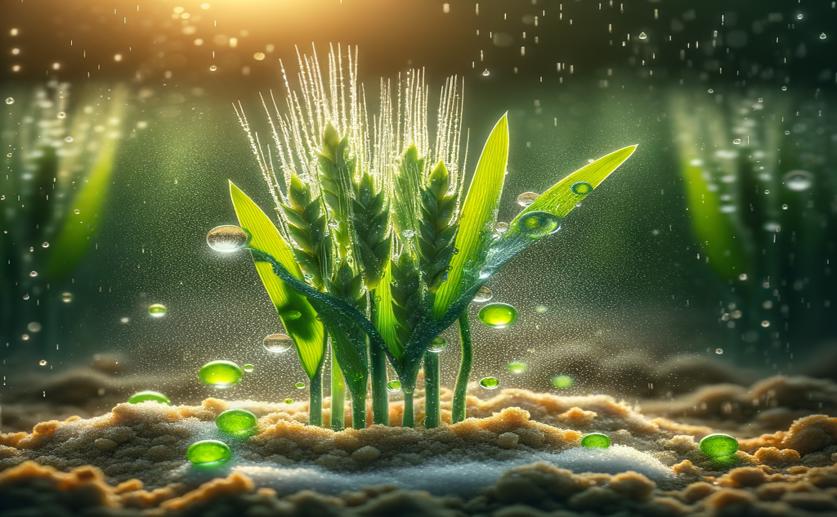
Improving Salt Stress Resistance in Wheat Seedlings with Trehalose and Mannitol
Jim Crocker
31st May, 2024

Image Source: Natural Science News, 2024
Key Findings
- The study was conducted on wheat seedlings of the commercial variety Sakha 94 to explore salt resistance
- Pre-soaking wheat grains in trehalose or mannitol improved salt stress tolerance in seedlings
- Trehalose and mannitol treatments increased antioxidant enzyme activities, reducing cell damage under salt stress
AgricultureBiochemPlant Science
References
Main Study
1) Enhancing salt stress tolerance in wheat (Triticum aestivum) seedlings: insights from trehalose and mannitol
Published 30th May, 2024
https://doi.org/10.1186/s12870-024-04964-2
Related Studies
2) Effect of Salt Stress and Foliar Application of Salicylic Acid on Morphological, Biochemical, Anatomical, and Productivity Characteristics of Cowpea (Vigna unguiculata L.) Plants.
3) Folic Acid Confers Tolerance against Salt Stress-Induced Oxidative Damages in Snap Beans through Regulation Growth, Metabolites, Antioxidant Machinery and Gene Expression.
4) Assessment of Soil Salinity Changes under the Climate Change in the Khorezm Region, Uzbekistan.



 28th May, 2024 | Jim Crocker
28th May, 2024 | Jim Crocker